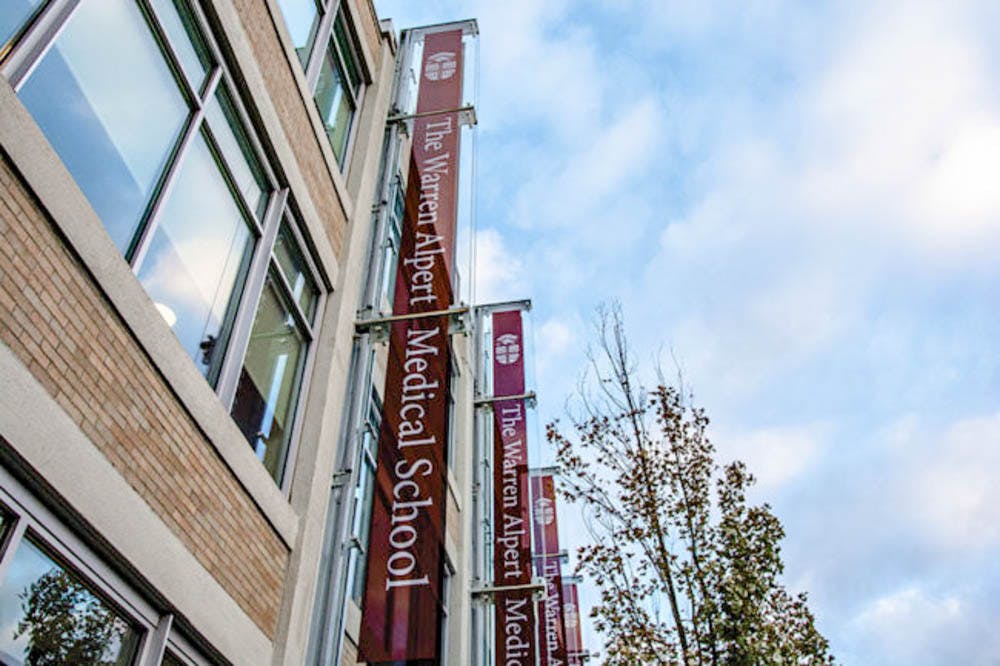Earlier this month, the Alpert Medical School received the Curricular Innovation Award from the Association of American Medical Colleges. This award of $2,500 is given out to four institutions across the United States and Canada that “work to advance the education of students, residents and practicing physicians about opioids, substance abuse disorder and pain management,” according to the AAMC website.
The Med School incorporates teaching about opioids from the very first year that students begin, said Paul George, associate dean of medical education. “In the first year, (students learn about) some of the basic science behind pain, including some of the pharmacological and non-pharmacological ways to manage pain,” he said. Medical students also learn interviewing skills to help them communicate with individuals who are struggling with substance abuse and encourage users to think about ways to stop, he added. Students begin screening for opioid use and performing brief interventions in their second year.
Interprofessional workshops in which medical students work with nursing, pharmacy and social work students from Rhode Island College and the University of Rhode Island are interwoven into the curriculum, said Sarita Warrier, assistant dean of medical education. These unique workshops focus on different aspects of opioid use disorder such as the doctor-patient interaction, treatment for the disorder and complex case studies, she added.
Another unique aspect of the Med School’s curriculum is that it automatically qualifies students to obtain a waiver that allows them to prescribe medications designed to counter the effects of opioid overdose. “Brown was one of the first programs (to have) a curriculum that is enough to qualify for this waiver,” Warrier said. Typically, acquiring the waiver requires eight hours of additional training as a practicing physician, but the state has recognized “that (Alpert) students have had such a comprehensive curriculum through their four years that they have met the requirements for this waiver,” she added.
While this waiver only applies in Rhode Island, the Med School and the Rhode Island Department of Health “have talked to other states about reciprocity … to see if (The Med School’s curriculum) would count elsewhere,” George said. Currently, the states they have talked to are “focusing on replicating what we’ve done,” but the team hopes that reciprocity will follow, he added.
The Med School’s heavy focus on opioid misuse is particularly important because Rhode Island has been particularly affected by the opioid crisis, said Paul Wallace MD’19. “As of two years ago, Rhode Island had the ninth highest opioid overdose death rate in the country … (but) we are one of a handful of states that, between 2016 and 2017, actually saw a small decrease in the number of overdose deaths,” he added.
A large part of this decrease may be attributed to how both the University as a medical community and the Rhode Island Department of Health “have been pretty proactive about implementing different community programs and increasing education around opioid use,” Wallace said. The Med School has also been good about “being on the cutting edge in terms of treating opioid use disorder,” he added.
In addition to the monetary prize, the Med School was invited to present its work at an AAMC national workshop on combatting opioid misuse, which will take place in May 2019.





